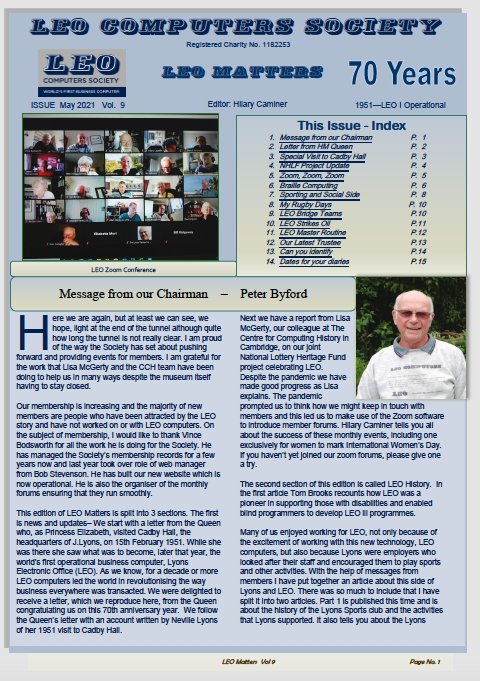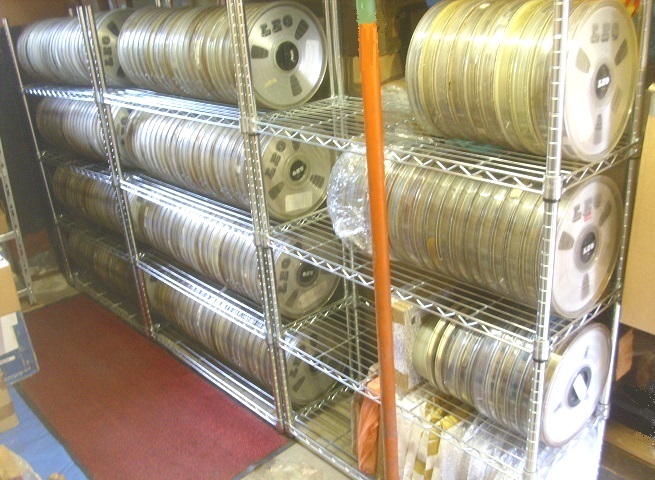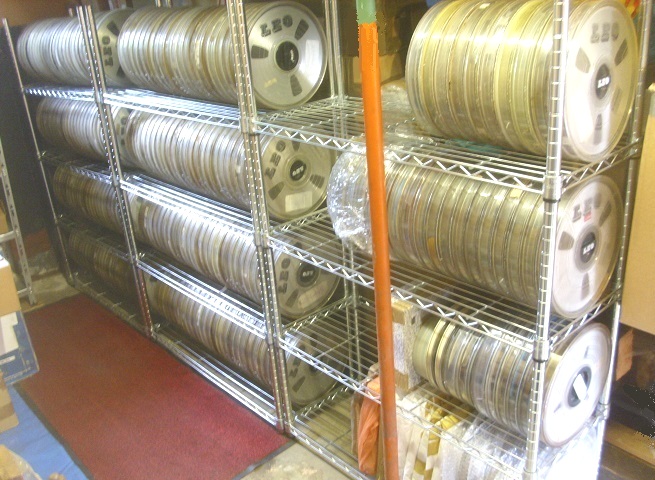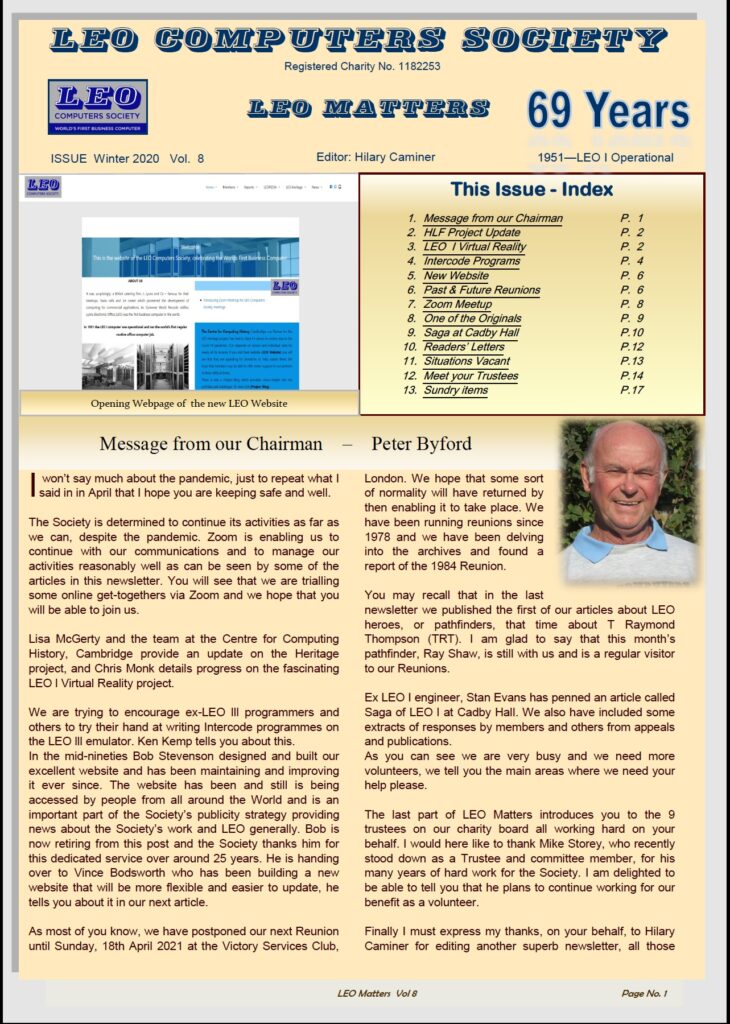LEO Matters from May 2021 in desktop published format. Edited by Hilary Caminer and published by Bernard Behr.
Contents: (Clicking on the highlights below will take you straight to the page containing the item highlighted. – Note on slow Internet connctions this may not work and you will be taken to page 1 in all cases).To open the whole document click on the image of the front page.
- Message from our Chairman, Peter Byford
- Message from HM the Queen
- Update on the NHLF Project , By Lisa McGerty
- Special visit to Cadby Hall ,By Neville Lyons
- Zoom Zoom Zoom, by Hilary Caminer
- Braille Computing, by Tom Brookes
- Sports and Social Part 1, by Peter Byford
- My Rugby Days at Lyons – by Fred Whittaker
- LEO Bridge Teams in the 1960s, by Tom Brooks, David Alterton, Mike Lawson
- LEO Strikes Oil, by Mike Hancock
- LEO Master Routine, by Michael R Guy
- Our Latest Trustee– Philip Cleary
- Can You Identify
- Dates for Your diaries
Date : November 2020
LEO Matters May 2021 Vol 9 Read More »







